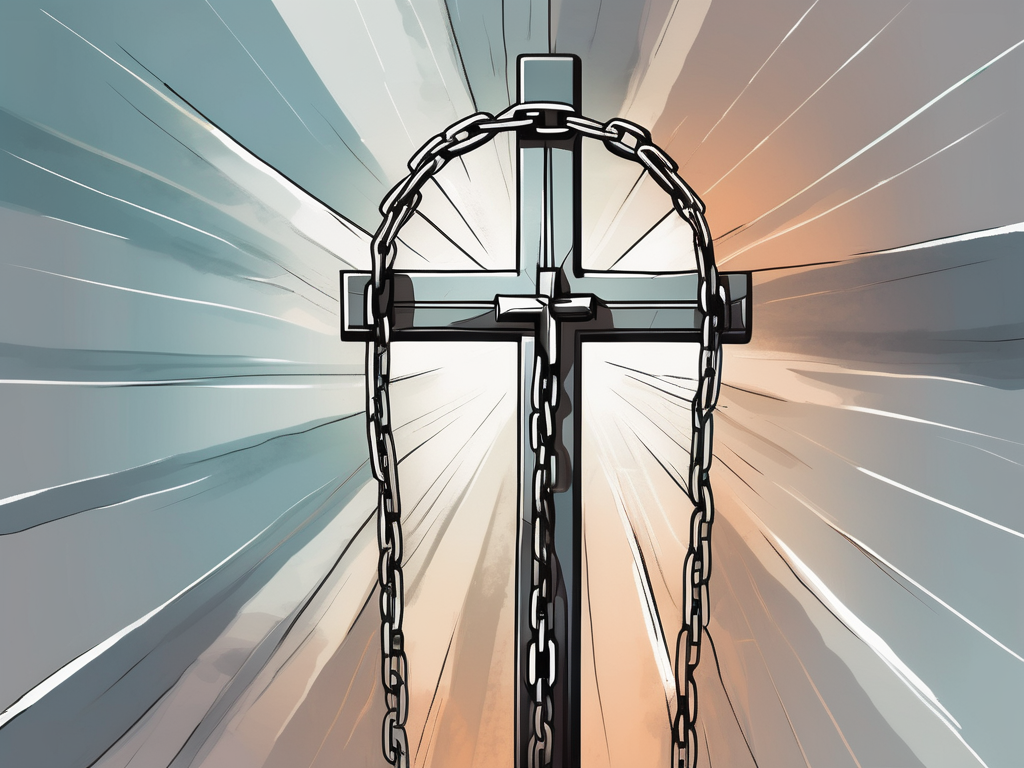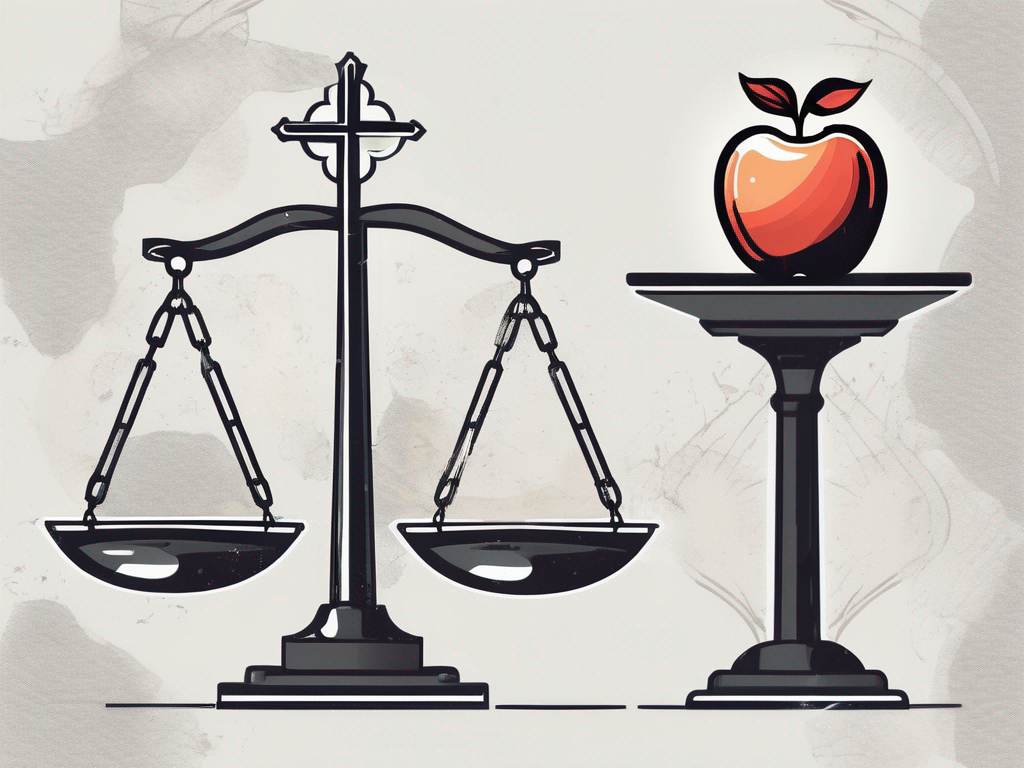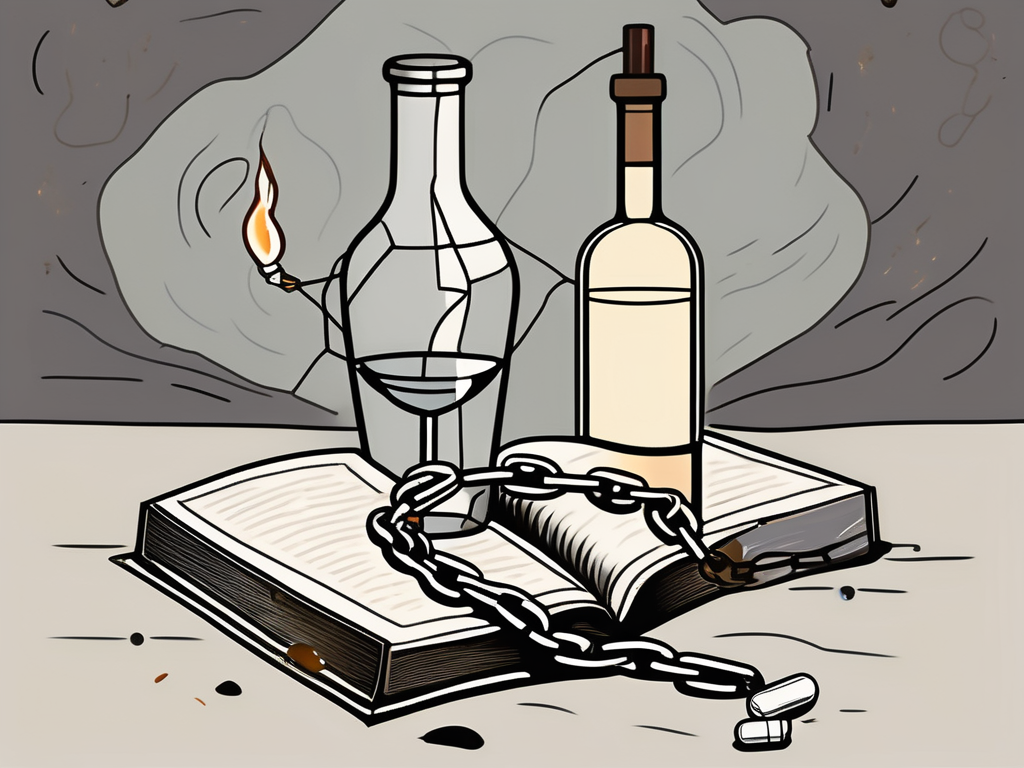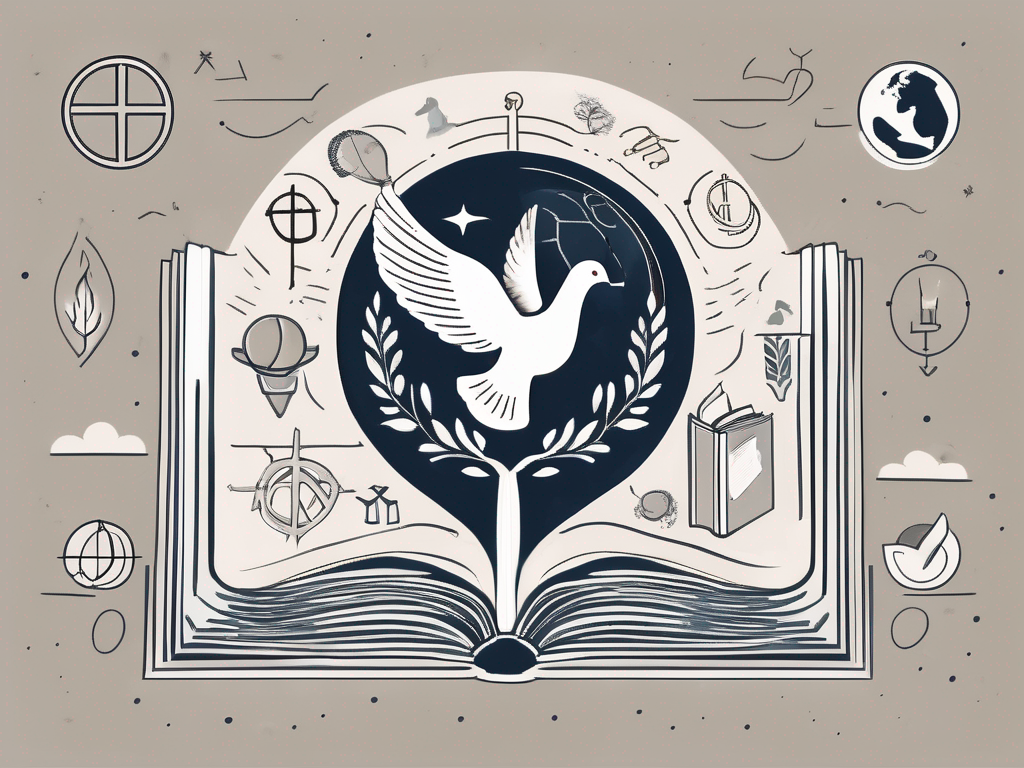Deliverance is a concept that holds great significance in the realm of Christianity. It is a term that encompasses the idea of being liberated or rescued from a particular situation or condition. The Bible, as the ultimate guidebook for believers, offers valuable insights into the topic of deliverance. Let’s explore what the Scriptures say about this transformative experience.
Understanding the Concept of Deliverance
Before delving deeper into the biblical perspective on deliverance, it’s important to grasp the essence of this concept. At its core, deliverance signifies freedom from oppression, bondage, or any form of captivity. It involves being set free from the clutches of darkness and finding liberation through the power of God.
Deliverance is not merely a physical release; rather, it encompasses deliverance from spiritual, emotional, and mental strongholds that hinder one’s growth and relationship with God. It is about experiencing the freedom and victory that Christ offers to every believer.
Imagine a person who has been trapped in a deep, dark pit. They are surrounded by walls that seem impossible to climb. They feel suffocated, hopeless, and desperate for a way out. This is the state of someone in need of deliverance. They long to be set free from the chains that bind them, to experience the light and joy that comes from being rescued.
Now, picture a rescuer descending into that pit, extending a hand to the person trapped inside. This rescuer is none other than Jesus Christ, the ultimate deliverer. With His strength and power, He lifts the person out of the pit, breaking the chains that held them captive. This is the essence of deliverance.
Biblical Definition of Deliverance
To comprehend the biblical understanding of deliverance, we must first turn to the Scriptures. In its simplest form, deliverance can be defined as the act of being rescued or saved by God. The Bible showcases numerous instances where individuals, communities, and nations experienced divine deliverance from various forms of trouble or peril.
One such example is found in the book of Daniel. When Daniel was thrown into the lion’s den for his faithfulness to God, he cried out to the Lord for deliverance. God shut the mouths of the lions, protecting Daniel from harm. This miraculous deliverance not only saved Daniel’s life but also served as a testimony to the power and faithfulness of God.
Another powerful story of deliverance is seen in the life of the apostle Paul. While imprisoned in Rome, Paul faced numerous trials and hardships. Yet, through it all, he experienced the deliverance of God. In his letter to the Philippians, Paul writes, “I eagerly expect and hope that I will in no way be ashamed, but will have sufficient courage so that now as always Christ will be exalted in my body, whether by life or by death” (Philippians 1:20). Paul’s unwavering faith in God’s deliverance sustained him in the midst of adversity.
The Importance of Deliverance in Christianity
Deliverance holds a vital place in Christianity, for it symbolizes the power and authority of Jesus Christ. As believers, we are called to walk in the freedom that Jesus has secured for us through His death and resurrection. Deliverance brings about spiritual growth, healing, and restoration, allowing us to live victorious lives in Christ.
When we accept Jesus as our Savior, we are no longer slaves to sin and darkness. Through His sacrifice on the cross, Jesus broke the power of sin and death, offering us a new life in Him. This new life is characterized by deliverance from the bondage of sin and the freedom to live according to God’s will.
It is essential to recognize that deliverance is not a one-time event but an ongoing process. It involves continuous surrender to God, renouncing of sin, and relying on the Holy Spirit to break free from bondages that may hinder our spiritual journey. As we grow in our relationship with God, He reveals areas in our lives that need deliverance, and He empowers us to overcome them.
Deliverance is not always easy. It requires perseverance, faith, and a willingness to let go of the things that hold us back. But the rewards of deliverance are immeasurable. It brings us closer to God, strengthens our faith, and enables us to live out our purpose with passion and joy.
So, let us embrace the concept of deliverance and seek the freedom that Christ offers. Let us surrender our lives to Him, trusting that He will deliver us from every form of captivity. May we experience the fullness of His love, grace, and power as we walk in the freedom of deliverance.
Old Testament References to Deliverance
Deliverance in the Book of Exodus
The book of Exodus is a compelling testimony to God’s deliverance. The Israelites’ bondage in Egypt represents the oppression and captivity that sin holds over humanity. Through a series of divine interventions, God displayed His power and delivered His people from the hands of Pharaoh.
This biblical account teaches us that God is not only willing but also able to set us free from the chains that bind us. It reminds us that no prison is too strong for the hand of God to break through. Through faith, prayer, and obedience, we too can experience God’s deliverance in our lives, no matter how dire the circumstances may seem.
As we delve deeper into the story of Exodus, we witness the remarkable events that unfolded during the Israelites’ journey towards freedom. From the ten plagues that struck Egypt, each one demonstrating God’s supremacy over the false gods worshipped by the Egyptians, to the parting of the Red Sea, where God made a way for His people when there seemed to be no way.
Imagine the awe and wonder that must have filled the hearts of the Israelites as they witnessed these miraculous acts of deliverance. The thunderous roar of the Red Sea parting, revealing a dry path amidst the crashing waves, must have been a sight that forever etched itself into their memories.
But deliverance did not end with their physical escape from Egypt. God continued to guide and provide for His people as they journeyed through the wilderness. He led them with a pillar of cloud by day and a pillar of fire by night, ensuring their safety and protection.
Through the manna that rained down from heaven and the water that gushed forth from a rock, God sustained His people in the barren wilderness. His faithfulness was evident in every step of their journey, reminding them that He was their deliverer and provider.
Prophets and Deliverance
The role of prophets in the Old Testament also sheds light on the concept of deliverance. Prophets were sent by God to deliver messages of warning, correction, and hope to His people. They spoke forth God’s promises of deliverance, proclaiming a future where freedom and restoration would prevail.
These prophetic voices served as channels through which God communicated His desire to deliver, redeem, and restore His people. Their words reminded the Israelites and us today of God’s faithfulness and His unwavering commitment to setting the captives free.
One such prophet was Isaiah, whose words resonate with hope and deliverance. In Isaiah 61, he prophesied about the coming Messiah, who would bring good news to the poor, bind up the brokenhearted, proclaim freedom for the captives, and release from darkness for the prisoners.
Isaiah’s words not only provided comfort and assurance to the Israelites during their time of exile but also pointed to the ultimate deliverance that would come through Jesus Christ. The deliverance promised by the prophets was not limited to physical liberation but encompassed spiritual freedom and restoration.
Throughout the Old Testament, we see a consistent theme of deliverance woven into the fabric of God’s relationship with His people. From the exodus of the Israelites to the prophetic promises of future deliverance, God’s desire to set the captives free is evident.
As we reflect on these Old Testament references to deliverance, let us be reminded of God’s power, faithfulness, and love. Let us have faith that He is able to deliver us from any bondage or captivity we may find ourselves in. And let us trust in His promises of freedom, restoration, and ultimate deliverance through Jesus Christ.
New Testament Perspectives on Deliverance
Jesus Christ and the Act of Deliverance
When we shift our focus to the New Testament, we find Jesus, the ultimate deliverer, and His ministry of liberation. Throughout His earthly ministry, Jesus showcased God’s power to set people free from a variety of afflictions, be it physical, emotional, or spiritual.
One of the most remarkable examples of Jesus’ deliverance is found in the story of the Gadarene demoniac. This man, possessed by a legion of demons, was tormented and isolated from society. But when Jesus arrived on the scene, He commanded the demons to leave, and the man was instantly set free. This powerful act of deliverance not only restored the man’s sanity but also brought him back into community, demonstrating the holistic nature of Jesus’ liberation.
In addition to casting out demons, Jesus also performed numerous physical healings. He restored sight to the blind, made the lame walk, and even raised the dead. These acts of deliverance not only brought physical healing but also revealed Jesus’ authority over sickness and death.
Furthermore, Jesus’ ministry of deliverance extended beyond the physical realm. He offered forgiveness of sins to those who believed in Him, liberating them from the guilt and shame of their past. This spiritual deliverance brought about a radical transformation in people’s lives, as they experienced the freedom and joy of being reconciled to God.
Deliverance in the Epistles
The apostles, in their letters to the early Christian communities, emphasized the importance of deliverance in the believer’s life. They urged believers to resist the devil, walk in righteousness, and put on the armor of God to stand against the schemes of the enemy.
Paul, in his letter to the Galatians, highlights the freedom believers have in Christ, stating, “For freedom, Christ has set us free” (Galatians 5:1, ESV). Deliverance, in this context, is not only about breaking free from the bondage of sin but also about living a life transformed by the power of the Holy Spirit.
Moreover, the epistles provide practical guidance on how to experience deliverance in everyday life. James encourages believers to confess their sins to one another and pray for each other, emphasizing the importance of community in the process of deliverance. Peter reminds believers to be vigilant and sober-minded, resisting the devil’s temptations and standing firm in their faith.
Additionally, the epistles highlight the ongoing nature of deliverance. The Christian journey is not a one-time event but a continuous process of being transformed into the image of Christ. As believers grow in their relationship with God, they experience deliverance from old patterns of thinking and behaving, and they are empowered to live a life of righteousness and holiness.
In conclusion, the New Testament presents a rich and multifaceted perspective on deliverance. Jesus, through His ministry, demonstrated God’s power to liberate people from various forms of bondage. The epistles provide practical guidance for believers to experience ongoing deliverance and live transformed lives. As we embrace the message of deliverance in the New Testament, we are invited to walk in the freedom and abundant life that Jesus offers.
Theological Interpretations of Deliverance
Different Christian Denominations on Deliverance
While deliverance is universally acknowledged as a biblical concept, different Christian denominations may have varying interpretations and practices concerning this subject. Some emphasize the power of prayer and spiritual warfare, while others focus on the process of inner healing and deliverance.
Though these differences may exist, what unites believers is the recognition that true deliverance comes solely through our faith in Jesus Christ. It is essential to seek guidance from the Scriptures and the leading of the Holy Spirit in understanding and practicing deliverance in a way that aligns with biblical truths.
Modern Interpretations of Biblical Deliverance
In contemporary times, the concept of deliverance has evolved to address the specific challenges and struggles faced by individuals today. Mental health, addiction, and other societal issues have prompted a renewed focus on the healing and deliverance ministry within the Church.
Modern interpretations of deliverance often encompass counseling, therapy, and other holistic approaches alongside prayer and spiritual guidance. The goal is to provide a comprehensive support system that assists individuals in experiencing complete freedom and restoration in all areas of their lives.
Prayers for Deliverance in the Bible
Psalms and Deliverance Prayers
The book of Psalms serves as a rich resource of prayers for deliverance. David, the author of many Psalms, cried out to God for deliverance from his enemies, his own sins, and various troubles he encountered throughout his life.
Psalms such as Psalm 34 and Psalm 91 are particularly powerful in addressing the need for deliverance. They serve as a reminder that God is our refuge and fortress, ready to deliver us from all forms of evil and distress.
New Testament Prayers for Deliverance
The New Testament also provides examples of prayers for deliverance. In the Lord’s Prayer, Jesus teaches His disciples to pray, “Deliver us from evil” (Matthew 6:13, ESV). This simple yet profound petition encompasses the essence of deliverance, acknowledging our need for God’s protection and liberation from the influence of evil.
Additionally, the apostle Paul, in his letter to the Ephesians, encourages believers to pray “at all times in the Spirit, with all prayer and supplication” (Ephesians 6:18, ESV). Such prayers can include requests for deliverance, seeking God’s intervention in every aspect of our lives.
In conclusion, the Bible speaks extensively about deliverance, highlighting its importance, providing illustrations of deliverance in the Old and New Testaments, and offering prayers and guidance for those seeking liberation. As believers, we can find comfort and hope in knowing that our deliverance ultimately rests in the hands of a loving and powerful God.












